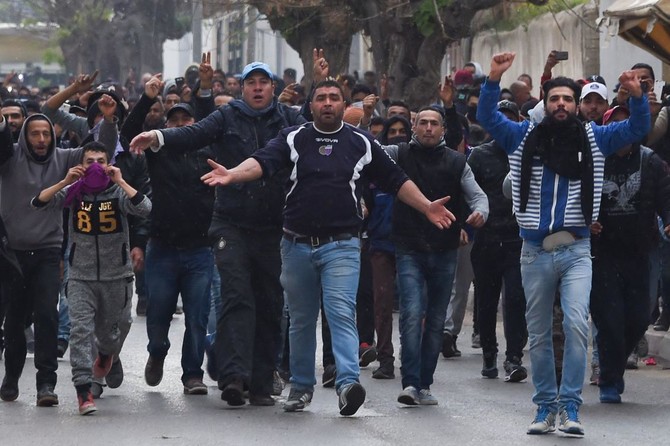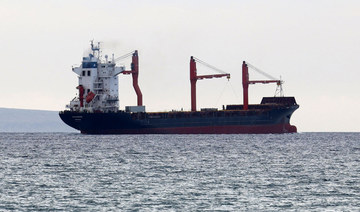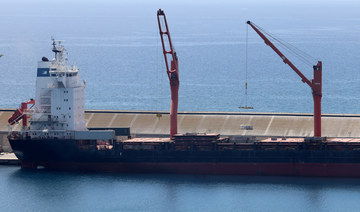TUNIS: Tunisian police arrested 237 people, including two militants, for attacking police stations and government buildings and for vandalism in anti-government protests, the interior ministry said on Wednesday.
Demonstrations broke out in the North African country on Sunday spreading since then to more than 20 towns as people protest against new tax and price increases imposed by the government on Jan 1 to reduce a ballooning deficit and satisfy foreign lenders.
Clashes erupted in more than 20 towns late on Tuesday, injuring dozens of people, and interior ministry spokesman Khelifa Chibani said 58 members of the security forces were wounded in the clashes.
Among the arrested were two militants who had helped storm a police station in Nefza town, he said. In Tunis, a crowd stormed a Carrefour market.
"Last night criminals looted and burned security centres, 45 police cars were torched and some government offices were attacked," Chibani said.
"They blocked roads and carried out robberies in many cities ... Obviously, these are not protests, but theft and damage to public and private property."
Protests drew in hundreds in each town where demonstrations were staged but they have been smaller than in previous instances since 2011 in Tunisia, where extremists, secular groups and labour unions have argued over the country's direction.
In Tebourba 30 kilometres (20 miles) west of the capital Tunis, hundreds of young people took to the streets on Tuesday after the funeral of a man in his 40s who died in the unrest.
Police have insisted they did not kill the man. The results of an autopsy have not been made public.
Unrest was also reported in the working-class neighbourhoods of Djebel Lahmer and Zahrouni on the outskirts of Tunis, the central cities of Gafsa and Kasserine, and the northern town of Jedaida.
But AFP correspondents said calm had returned to these areas on Wednesday morning.
In the central town of Sidi Bouzid, the cradle of the protests that sparked the 2011 Arab Spring uprisings, youths blocked roads and hurled stones, causing the police to retaliate with tear gas, an AFP reporter said.
A representative of Tunisia's Jewish community said two Molotov cocktails were thrown at the entrance to two Talmudic schools on the Mediterranean island of Djerba, but their interiors were not damaged.
CALLS
Public anger has been building since Jan. 1, when the government raised the prices of petrol and other items and hiked taxes on cars, phone calls, internet usage and hotel accommodation as part of those economic reforms.
The Ennahda party, which rules with secularists, said the government should raise the minimum monthly wage of 357 dinars ($143.17) and give more aid for poor families, joining similar calls by labour unions.
There was no immediate comment from the government.
But in a sign that the public coffers are strained, Taoufik Rajhi, minister of economic reforms, told parliament the state was unable to improve the health, infrastructure and education sectors, with one of the highest wage bills in the world in terms of the size of the economy.
Parliament approved on Tuesday a bill to offer voluntary redundancies to public service workers, part of the 2018 budget trying to cut the deficit.
While Tunisia is widely seen as the only democratic success story among the nations where Arab Spring revolts took place in 2011, it has had nine governments since then and none of them have been able to tackle growing economic problems.
The 2011 uprising and two major militant attacks in Tunisia in 2015 damaged foreign investment and tourism, which accounts for 8 percent of its economic activity.
The government says it wants to cut the public sector wage bill to 12.5 percent of gross domestic product in 2020 from about 15 percent now by offering voluntary redundancies.
But it is also trying to impose higher petrol prices and contributions to social security, which are tough for many people after years of hardship.

























